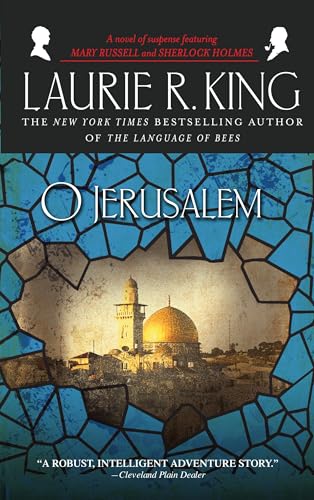Anyone familiar
with the Sherlock Holmes canon, or even Christopher Morley's wonderful introduction to it, knows one of Sir Arthur Conan Doyle's most delightful and infuriating tricks was to open an adventure story with a tantalizing hint about another adventure that, alas, never got written down.
Watson always had an acceptable excuse for this, of course. There simply wasn't enough time, or the details of the case were classified or the mystery involved persons so distinguished the tale simply could not be put to paper during Watson's lifetime due to national security interests. Or, the case notes were locked in a vault in the bank.
Watson always had an acceptable excuse for this, of course. There simply wasn't enough time, or the details of the case were classified or the mystery involved persons so distinguished the tale simply could not be put to paper during Watson's lifetime due to national security interests. Or, the case notes were locked in a vault in the bank.
Of
course, we Holmesians (or Sherlockians, since, irritatingly, no one seems to bother with the distinction anymore) loved Holmes and Watson all the more for it.
King
has taken a different tack in the fifth installment of the Mary Russell
Sherlock Holmes pastiche series, giving us an entire volume dedicated to an
adventure only alluded to in The Beekeeper's Apprentice.
And it
is a treat.
Much
like in The Moor, Holmes and Russell spend much of the book wandering in early
20th century Palestine drawn into a mystery that, naturally, brings
us a glimpse of T.E. Lawrence, Gen. Edmund "Bull" Allenby and two
spies-cum-Bedouin guides.
Both the guides are well developed characters, fascinating in and of themselves and keep the story going even during long, rather dry stretches of travel. King uses them as vehicles to explain Arabic and Bedoiun culture, but thankfully the pair never become caricatures of themselves, a tricky feat King pulls off exceedingly well.
Those who have studied Middle Eastern history or culture (I should admit here that I did, both before and during college, and of course afterwards to the extent I can) will appreciate King's discernment in what she chooses to highlight and use during the course of her novel.
The mystery itself was pretty good, though not great by mystery reader standards, laden with international intrigue and coated with a likely bitter resentment that stems from the fallout of World War I. There is a fun, but subtle, reference to Moriarty (though he has nothing to do with adventure, of course) that readers of the Canon will appreciate.
Both the guides are well developed characters, fascinating in and of themselves and keep the story going even during long, rather dry stretches of travel. King uses them as vehicles to explain Arabic and Bedoiun culture, but thankfully the pair never become caricatures of themselves, a tricky feat King pulls off exceedingly well.
Those who have studied Middle Eastern history or culture (I should admit here that I did, both before and during college, and of course afterwards to the extent I can) will appreciate King's discernment in what she chooses to highlight and use during the course of her novel.
The mystery itself was pretty good, though not great by mystery reader standards, laden with international intrigue and coated with a likely bitter resentment that stems from the fallout of World War I. There is a fun, but subtle, reference to Moriarty (though he has nothing to do with adventure, of course) that readers of the Canon will appreciate.
Perhaps
because there are four characters, or perhaps because it
pre-dates Russell and Holmes' marriage, or (quite possibly) because I have been
fascinated with the Middle East long before current events threw it into our
headlines daily, I found this to be an wonderful, immersive reading experience.
All of
King's usual skill – character creation and development, historical research
blended artfully into a fictitious story, sweeping settings and vivid
landscapes – are present in this book.
I found Sherlock to be, as usual, as close to himself as can be expected in a pastiche and Russell's religious devotion and passion softens the edges of both their cold, analytic minds.
The passage in which Russell describes seeing the Dome of the Rock for the first time from a hill above Jerusalem, as a Jewish woman, is beautiful and moving. But at no point is Russell proselytizing, either.
I found Sherlock to be, as usual, as close to himself as can be expected in a pastiche and Russell's religious devotion and passion softens the edges of both their cold, analytic minds.
The passage in which Russell describes seeing the Dome of the Rock for the first time from a hill above Jerusalem, as a Jewish woman, is beautiful and moving. But at no point is Russell proselytizing, either.
I have
always found Russell's interest and academic devotion to theology, and her
sincere comfort in religion, to be a wonderfully balancing counterpoint to
Holmes' sometimes icy, but crystalline clear, vision of the world. It is one of
the things that keeps me reading the series and in this book I found that
attribute shone brilliantly.
Another
of King's talents this installment illustrates more than others is
her ability to keep the reader in the story using realistic detail in her
character's stream of consciousness. For example, Russell has to get used to
eating while in a kneeling position and, due to all the walking they do in
desert, gets badly blistered feet. King never forgets these facts but doesn't
dwell on them unduly, either. It helps gives a sense of time.
Though Mycroft is hinted at, the reader is disappointed. Sigh. Although Caleb
Carr did an impressive job with Mycroft in The Italian Secretary, I would like
to see how King handles him.
Perhaps the next installment.
Perhaps the next installment.

No comments:
Post a Comment